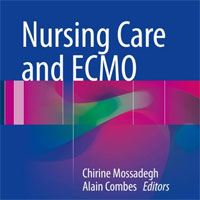Tag: treatment

Trends in Visits to Acute Care Venues for Treatment of Low-Acuity Conditions
From 2008 to 2015, total acute care utilization for the treatment of low-acuity conditions and associated spending per member in the United States increased, and utilization of non-ED acute care venues increased rapidly.... read more

Time-limited Trial of Intensive Care Treatment
In critically ill patients, it is frequently challenging to identify who will benefit from admission to the intensive care unit and life-sustaining interventions when the chances of a meaningful outcome are unclear. In addition,... read more

New antibiotics and antimicrobial combination therapy for the treatment of gram-negative bacterial infections
Only few new molecules have an adequate activity against MDR gram-negative pathogens, especially carbapenemase-producer strains. Among these, ceftozolane/tazobactam has been recently approved for clinical use. Other compounds,... read more

Percutaneous Repair or Medical Treatment for Secondary Mitral Regurgitation
Among patients with severe secondary mitral regurgitation, the rate of death or unplanned hospitalization for heart failure at 1 year did not differ significantly between patients who underwent percutaneous mitral-valve repair... read more

It Makes No Difference – Glucocorticoids for the Treatment of Septic Shock
The administration of a continuous infusion of hydrocortisone to a general population of patients in septic shock on mechanical ventilation cannot be recommended at this time. The authors conclusion that glucocorticoids do... read more

ECMO for Severe ARDS
Mr. Jackson is a 36-year-old man whom you are caring for in the intensive care unit (ICU). Before this hospitalization, he was healthy and took no medications. He has never smoked, and he drinks three or four beers every... read more

Diagnosis and Treatment of Clostridium difficile Infection
Clostridium difficile infection (CDI) is less common than antibiotic-associated diarrhea and irritable bowel syndrome. There is significant concern about overdiagnosis and subsequent overtreatment of CDI with increasing use... read more
Watchdog Group Calls for NIH to Halt Dangerous Study of Sepsis Treatment
A medical watchdog group is calling on the National Institutes of Health to immediately stop the enrollment of patients in a clinical trial of sepsis treatment and launch an investigation of how the study received approval,... read more

Partial Oral versus Intravenous Antibiotic Treatment of Endocarditis
In patients with endocarditis on the left side of the heart who were in stable condition, changing to oral antibiotic treatment was noninferior to continued intravenous antibiotic treatment. After randomization, antibiotic... read more

Evaluation of Stressors in ICUs
The environmental and psychological factors affecting intensive care unit patients varied according to age, sex, and educational and surgical status. These factors had adverse effects on the patients. The elimination or modification... read more

The Cumulative Effect of Reporting and Citation Biases on the Apparent Efficacy of Treatments: The Case of Depression
The problem of study publication bias is well-known. Our examination of antidepressant trials, however, shows the pernicious cumulative effect of additional reporting and citation biases, which together eliminated most negative... read more

S1PR2 deficiency decreased macrophage pyroptosis and improved survival in E. coli sepsis
Sphingosine-1-phosphate receptor 2 (S1PR2) deficiency decreased macrophage pyroptosis and improved survival in E. coli sepsis. These beneficial effects were attributed to the decreased caspase-11 activation of S1PR2-deficient... read more

Intensive care in severe malaria: Report from the task force on tropical diseases by the WFSICCM
Severe malaria is common in tropical countries in Africa, Asia, Oceania and South and Central America. It may also occur in travelers returning from endemic areas. Plasmodium falciparum accounts for most cases, although P... read more

Effect of procalcitonin-guided antibiotic treatment on clinical outcomes in ICU patients with infection and sepsis patients
Procalcitonin-guided antibiotic treatment in ICU patients with infection and sepsis patients results in improved survival and lower antibiotic treatment duration. Mortality in the 2252 procalcitonin-guided patients was significantly... read more








